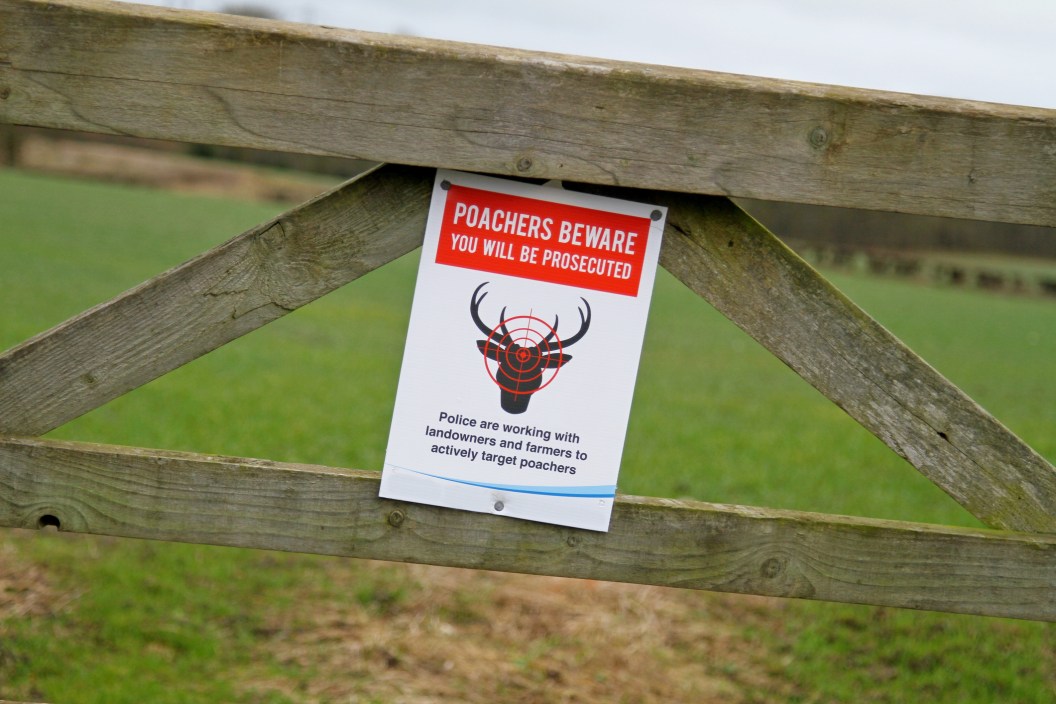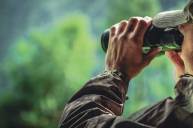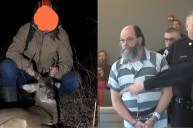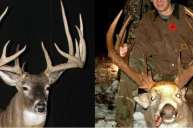Honest, ethical, law-abiding hunters and anglers are not poachers. Poachers are criminals who rob hunters and the public of wildlife and natural resources via illegal methods.
Hunters are sometimes lumped in with criminals, mainly due to poor terminology. It's often seen in the term "illegal hunting" used to describe someone who was caught poaching.
There is a clear line between thieves and ethical sportsmen. Hunting is not poaching, and poaching is not hunting. Hunting is an important part of wildlife management based on scientific management. It's highly regulated. Poaching is the illegal take of wildlife. Hunters respect the laws created to guide hunting and manage wildlife. Poachers disregard the regulations and do what they want to do for selfish reasons. Hunters contribute to conservation through the fees they pay for licenses and game tags. Poachers don't contribute to conservation.
Distinguishing Lawful Hunting and Fishing from Poaching

Hunters don't steal nine bucks like this from the public. Photo by the Michigan DNR
Before we go any further, let's just note that Merriam-Webster defines a poacher as "one that trespasses or steals," and "one who kills or takes wild animals (such as game or fish) illegally." You'll find a very similar definition for the word "poaching." There's a very clear distinction here between someone who steals and someone who hunts legally. Which is why it's so puzzling for me that so many of my fellow journalists take the time to write out "illegal hunter" when there's already a shorter word for the type of criminal who steals wildlife resources from all of us. That includes the non-hunting public.
To better illustrate what I mean, consider the guy who got busted only a few miles from where I hunt for poaching nine different bucks in 2021. He stayed up all night every night, driving through fields spotlighting big bucks to shoot, according to authorities' reports. There's a huge difference between this poacher and the guy or gal who dedicated days and even weeks to staying on treestand in freezing weather conditions hoping for just one fleeting chance at that big buck they've staked out all season.
However, the first one is going to make the headlines and reinforce a negative stereotype of the stupid, drunken, drugged-up redneck in the eyes of the public who doesn't know any better. Case in point, it's probably fair to argue that the 1942 Disney animated adaptation of "Bambi" did more damage to hunting than any other single event of the last 100 years. The movie has multiple scenes of men blasting away at every single animal that moves in the forest. I don't think it's too much of a stretch to say idiots like the guy who just got banned from hunting for life in Indiana after a multi-state turkey poaching rampage help reinforce that negative image. It's a negative image which has been repeated ad nauseam in popular culture ever since.
Using the term "illegal hunting" doesn't put enough distance between legal acts and criminal ones. And there's an immediate association of the illegal act with the legal one if writers don't make this distinction, which many do not. It illustrates a bigger issue I've noticed when it comes to covering hunting and fishing topics.
The Disconnect Between Hunters and Non-Hunters is Deep
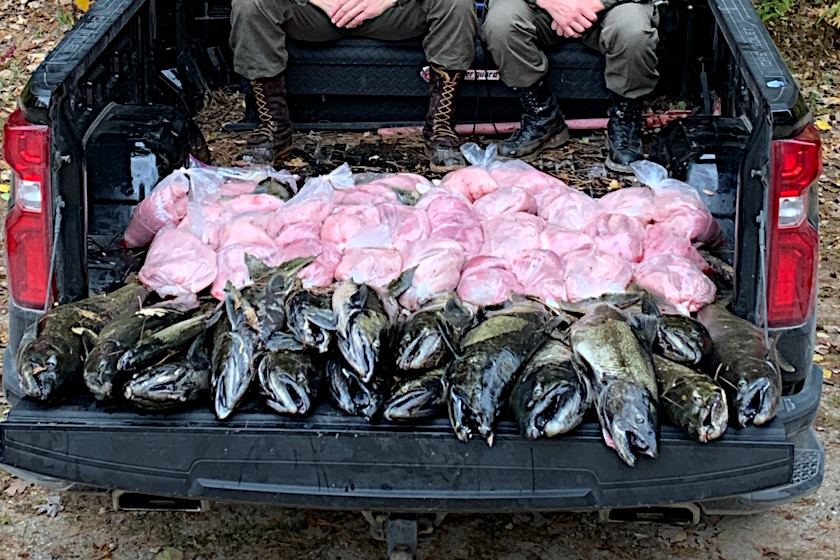
The work of poachers is often of a gross excess and should be far distanced from legal activities. Michigan DNR
My very first journalism job was writing for a biweekly newspaper deep in the heart of northwestern Wyoming in the shadow of Yellowstone National Park. It was an outdoorsy area, and many members of the newsroom staff were hunters and fishermen. It wasn't uncommon for us to write about hunting and fishing news in the area. There I witnessed firsthand the disconnect between those in the media who know hunting and those who do not.
One day, one of the staff writers, who was from the eastern U.S. and was hired just shortly before I was, got into an argument with the page designer over the use of the word "harvested" in a story when referring to the legal taking of a mule deer. To be fair to the writer, he had no clue that was a common term in hunting. He was relating the term back to the harvest of crops rather than animals. The writer kept insisting the story should use "killed" in place of "harvested," which the page designer did not like one bit.
The argument got rather heated and ended with the page designer, an avid hunter, stomping into the managing editor's office to complain about the staff writer. I noticed the two avoided talking to one another as much as possible from that point onward.
The big takeaway I got from witnessing this encounter is that journalists with no experience in hunting and fishing have a big disconnect when it comes to writing on the topic. If there's that big of a disconnect between the person covering the story and the topic, there's certain to be one with the eventual reader, too. To be fair again, I don't think this is usually intentional. It's more of a misunderstanding. But it does hurt hunting and fishing in the long run.
Unfortunately, the illegal actions of a few bad eggs get harder to separate from the law-abiding hunters and fishermen, the way many headlines are being written. Just think how it looks to a non-hunter if someone who just poached hundreds of deer, getting prison time and hundreds of thousands of dollars in fines, gets labeled as a "hunter" in all the major headlines.
Context matters, and it's time the hunting and fishing industry started acting like it. That starts with labeling poachers properly and keeping that terminology as far away from us as hunters as possible. At the very least, writers in the hunting and fishing spaces should be doing better on this already. If not, now is the time to start.
